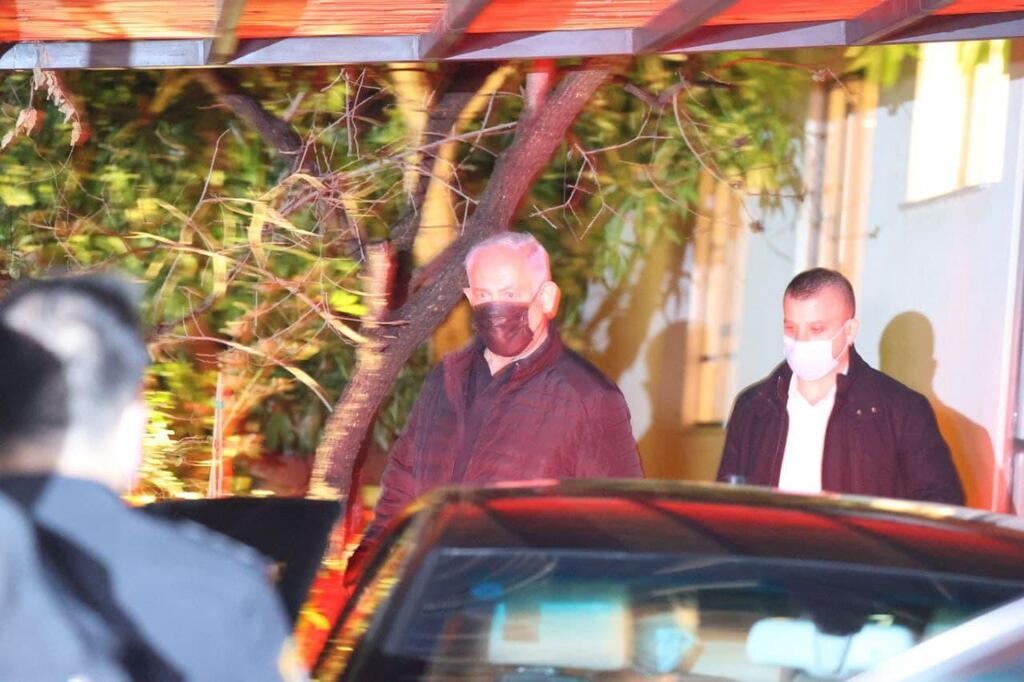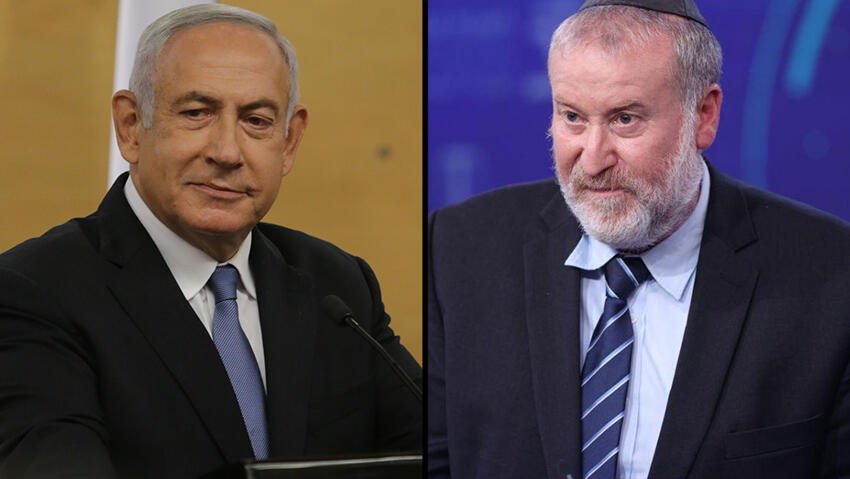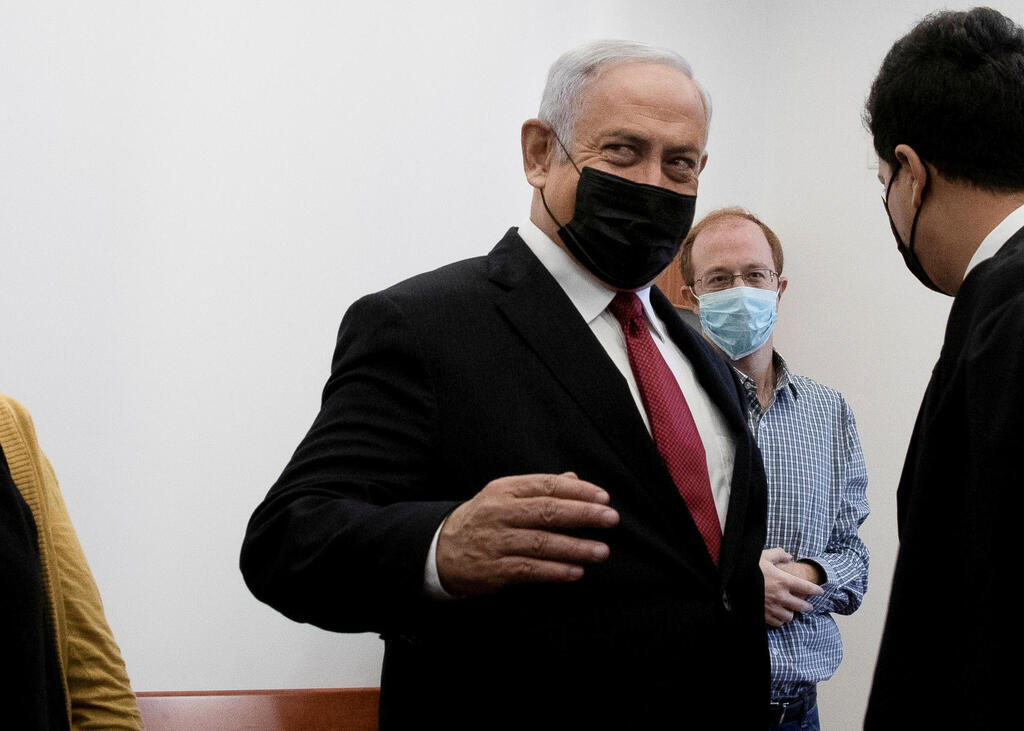Getting your Trinity Audio player ready...
Former Prime Minister Benjamin Netanyahu could be on his way to signing a plea deal that would put an end to his legal woes and see him bowing out as leader of the Likud Party and out of politics for a long while.
The possible agreement reported in Israeli media will keep Netanyahu out of jail. The ex-premier currently on trial for alleged bribery, fraud and breach of trust in three different cases is discussing a plea deal with the attorney general.
Netanyahu sat atop Israel’s government from 1996 to 1999, and from 2009 until last year.
Israeli media is reporting that Attorney General Avichai Mandelblit, who retires at the end of the month, is demanding that Netanyahu also admit to the offense of moral turpitude, which effectively would end the 72-year-old’s political career by legally barring him from politics for seven years.
Yossi Yona, a former Knesset member for the Labor Party turned lecturer at Ben-Gurion University, said that he was surprised by the news of a potential plea deal.
“Because Netanyahu has said over and over again that he does not want to end the files against him by striking a deal. He said it repeatedly that he is innocent and will prove his innocence in the court of law and is determined to fight to the end,” Yona said.
Netanyahu seems reluctant to sign a deal, and reports suggest that members of his family are not in favor of inking an agreement with the prosecutor’s office.
On Sunday evening, Netanyahu and his family visited his lawyer’s home in Ramat Gan for a consultation on the matter.
Meanwhile, Anton Shalhat, a Palestinian-Israeli political analyst with the Madar Center, said that he is “not surprised by the news” he has seen that one of Netanyahu’s lawyers advised him to go to the prosecution and ask for a deal.
“This in itself gives the impression that the indictments against Netanyahu are based on solid evidence that may lead to his conviction,” he said.
Signing a deal, Shalhat says, is a “tacit” admission that he is guilty. Yona says the Netanyahu investigations have divided the country, and that he “supports reaching a deal.”
“The continuation of cases in court will lead to chaos and division in Israeli society that may reach violence. Therefore, I think the best way to protect society is to reach a deal,” he said.
5 View gallery


Former Prime Minister Benjamin Netanyahu after the meeting with his lawyer on Sunday
(Photo: Moti Kimchi)
But talking about a deal doesn’t guarantee that one is coming, and Yona says a deal with the former prime minister still has to clear some hurdles.
“The major obstacle to the completion of this agreement is Netanyahu himself, who still claims that he is innocent and that he is persecuted by the leftist elites and the judicial bodies, and that they are meeting to remove him from the political arena by any means. They failed through the ballot, and now they are trying by making accusations,” Yona explained.
Mandelblit’s term concludes at the end of January, and Shalhat argues that this puts pressure on all sides to reach an agreement before he leaves office.
“This leaves a very short time to complete the transaction,” but, despite that, Shalhat says, “the deal will happen.”
The current government coalition derives its existence from Netanyahu’s continued presence in the opposition and in political life. But some observers expect its downfall after Netanyahu’s exit from the political fray.
“There is a high probability that the government will fall. It is a right-wing government, and it was forced to enter into an alliance with left-wing parties. In the event Netanyahu is removed from the political scene, there is an opportunity to form a purely right-wing government without any need to enter into a coalition with left-wing parties,” Yona said.
5 View gallery


Former Prime Minister Benjamin Netanyahu and outgoing Attorney General Avichai Mandelblit
(Photo: Moti Kimchi, Alex Kolomoisky)
The Bennett government made up of eight different parties from across the political spectrum controls a razor-thin majority of 61 seats in Israel’s 120-member parliament, the Knesset.
Likud leaders, including former government minister Israel Katz, former Jerusalem mayor Nir Barkat and others, are positioning themselves and have begun preparing to succeed Netanyahu and to form a new government.
Right-wing parties within the current government have expressed their desire to dismantle the government in favor of forming a new government without the left and Arab parties.
Ideologically conservative right-wing parties, such as Likud and current Prime Minister Naftali Bennett’s Yamina, could find it easier with Netanyahu out of the way to form a comfortable majority in a reshaped Knesset made up of parties on the right-wing.
This could spell the end to the first government in Israel’s history to be backed by an Arab party, the United Arab List-Raam party.
“I think Ra’am is a temporary state that will end with the fall of the current government. In the event a right-wing government is formed, there would be no need for Ra’am,” said Shalhat.
The article is written by Mohammad Al-Kassim and reprinted with permission from The Media Line




